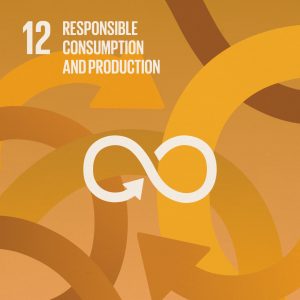Post contributed by Joan Hicken, Coordinator, Waste Reduction and Recycling Department
Greenhouse gases from human activities are the most significant driver of observed climate change according to the Environmental Protection Agency. Resource extraction and processing, manufacturing, transportation, consumption and waste management all result in greenhouse gas emissions. Rising levels of greenhouse gases in the Earth’s atmosphere are causing changes in our climate. Some of this can be attributed to solid waste.
The stuff we buy, use and throw away has an impact on climate. Everything we consume requires energy for its manufacture, transportation and disposal. This energy is usually produced by burning fossil fuels and this releases carbon dioxide and other greenhouse gases into the atmosphere. Wasting less and recycling more saves energy and is one of the easiest and most effective ways we can act to help reduce climate change. Fewer emissions are produced when waste is prevented in the first place, by consuming less (reducing), reusing and then recycling.
Waste reduction is the process of preventing or reducing the generation of waste. When we reduce our waste or reuse products, less energy is needed to extract, manufacture and transport goods. As a result, there are fewer energy-related emissions from resource extraction and manufacturing, and the absence of emissions related to waste management. Waste reduction can reduce emissions significantly.
Recycling is an effective way to also reduce greenhouse gases. Using recycled materials to make paper, plastic and cans saves energy and reduces emissions. For example, making new aluminum cans from old cans requires 95% less energy than producing them from raw materials. When we recycle, we avoid the greenhouse gas emissions from landfills and reduce the need to extract new resources from the earth.Purchasing products made from recycled materials instead of virgin materials helps reduce energy consumption. Manufacturing products from recycled materials requires less energy than making them from all new materials. Buying recycled reduces the amount of raw materials needed to manufacture items, conserving natural resources, saving water and energy, and reducing water and air pollution.
Waste reduction and recycling are ways that we can use less energy, reduce greenhouse gas emissions and contribute to a healthy climate.
Tips to help better manage the waste we produce:
- Choose reusable items instead of disposable
- Buy products with minimal packaging
- Use reusable bags instead of plastic bags
- Rent or borrow things you use infrequently
- Recycle office paper, cardboard, plastic bottles, aluminum cans, steel/tin cans
GET CONNECTED
Email aureuse@auburn.edu
Web auburn.edu/recycle
Twitter @AU_Recycles
Instagram @au_recycles
Facebook auburnuniversityrecycles
Learn about the SDGs & AU and our contributions related to this post.





